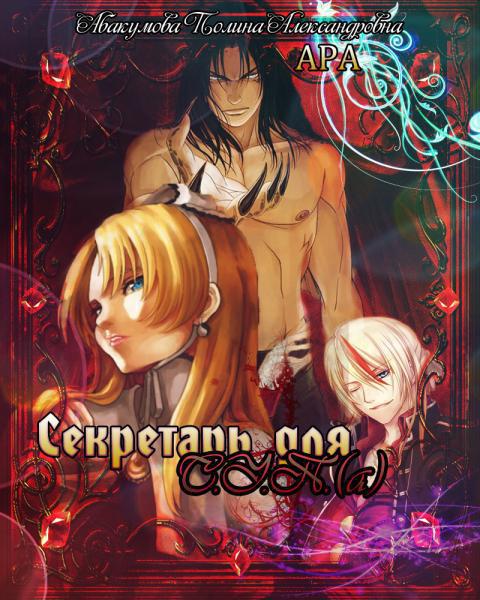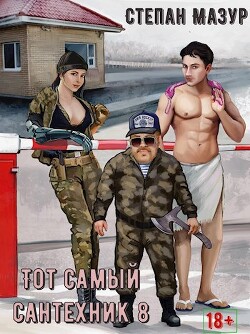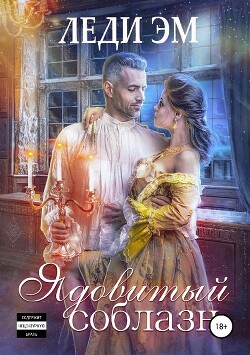Jean Plaidy - For a Queens Love: The Stories of the Royal Wives of Philip II
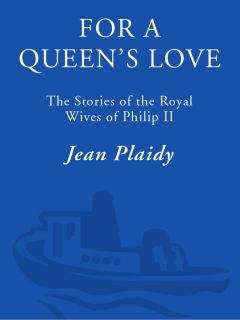
Помощь проекту
For a Queens Love: The Stories of the Royal Wives of Philip II читать книгу онлайн
“I have decided,” said Philip coolly, “that this medicine will be beneficial.”
“I understand your Highness.”
Dr. Olivares bowed and glided away.
Isabella said: “Why did Dr. Olivares come to see you this day? Has he news of the Prince?”
“Yes,” said Philip.
“He is better?” she asked eagerly.
“He will never be better. It is for us to hope that he will not be worse.”
Isabella, looking at her husband, saw in his face a calmness which, she knew, came from his having reached a solution to a problem which had given him much anxiety. She came to him and slipped her arm through his; it was a gesture from the old days when she had been more demonstrative in her affection.
“Philip,” she said, “you seem at peace. I am glad.”
Then he turned to her and gravely kissed her brow.
“Isabella,” he said, “let us pray as we have never prayed before. Let us implore God that this time it may be a son.”
Isabella felt suddenly cold as she looked into the inscrutable face of her husband.
Carlos was in a docile mood. He took the broth which had been specially prepared for him; but after drinking it he became very weak and could only lie still and speak in whispers.
He seemed not to know where he was, to be living in the past, calling himself the Little One, and asking for his locket.
His attendants sent for his Confessor.
Philip was called to him. He gave no sign of the emotion within him. He stood at one end of the bed, and as Carlos opened his eyes and looked at his father a faint smile touched the Prince’s lips.
Carlos knew. In those seconds his eyes told his father that he knew. There was no hatred now; he knew that soon he would have left this world in which his father had all that he, Carlos, had most desired: Dignity, the respect of men, and … Isabella.
Carlos tried to speak, but the death rattle was in his throat. His smile said: “I was to have killed you, and I made you kill me instead. You think you are the victor, Philip. But are you? You know, as I know, that it shall be as I said: I shall always be between you and Isabella.”
And for a moment, as he looked into the cold blue eyes, he saw Philip flinch, and he knew that in death the victory belonged to Carlos.
He had made a murderer of the man he hated; he had made him a murderer of his own son.
Isabella now knew that she would never give Philip the son for which they had fervently prayed. She was dying in the attempt to do so.
She had mourned Carlos deeply; she knew that his tragedy was interwoven with her own. She was weary of this harsh world in which she lived. From the Netherlands came terrible stories of the suffering under the cruelty of Alba … in the name of Spain. Her beloved France was torn in agony with its wars of religion. She did not wish to live amid such cruelty.
She had escaped from her mother, but she could never escape from Philip. She had been right to fear him as she had when she had first heard she was to marry him. Whenever he was near her now she saw him, not as Philip the King and tender husband, but as Philip the murderer of his own son.
She thought: If I had been a heretic, he would have carried the wood; he would have lighted it at my feet.
Always about him was an aura of horror. She could never think of that Philip who had been kind to her without seeing his other self, the gloomy fanatic, the man who had sought to bring Jeanne to the stake, the man who had taken his sword in his hand and sworn to serve the cruel Inquisition, who had sat tense and exultant while the bodies of men and women were burned in the flames, and the screams of martyrs rose to Heaven. Carlos was indeed between them, for she could never see her husband but as the man who had murdered his own son.
Yet she was sorry for him, this strange, frustrated man.
Now that her end was near she wanted to say to him: “Philip, you are failing to realize your dreams and the failure comes from yourself. Show kindness and tolerance to the Flemings and you will beat Orange yet.”
Kindness! Tolerance! But he had determined to set up the Inquisition all over the world; he believed the Inquisition to be an instrument of God. There was no kindness and tolerance there.
“Philip, Philip!” she wanted to cry. “How mistaken you are! You did not dream impossible dreams. You might have won the world and I might have loved you as you wished to be loved. With kindness and toleration the world could have been happy under your domination. I might have loved the man you could have been. But you do not understand, and the failure to make your dreams realities is due to yourself.”
But how could she say such things? And how could he ever understand them?
Her daughter was born to live but a few hours.
Philip sat by her bed. He knew that she was slipping away from him.
“Isabella!” he cried. “Come back to me. We will be happy yet.”
She smiled sadly. “It is too late, Philip,” she whispered. “Oh, do not grieve for me. You see me well on the way out of this unhappy world into a better one.”
“Isabella … Isabella … there is so much I have to tell you … so much I have to say. Life for us will be better yet.”
But he knew that he had lost her; and it seemed to him that he heard the mocking laughter of the son whom he had murdered.
an excerpt from
A
FAVORITE
OF THE
QUEEN
1
It was hot, even for August; the foul odors from the river, carrying the threat of pestilence, hung in the sullen air that sultry day; but the crowds who were assembling on Tower Hill were oblivious of discomfort. Traders had left their shops or stalls in Candlewick Street, East Chepe, and the Poultry; horse-dealers were coming from Smithfield Square; the goldsmiths from Lombard Street, the mercers of Chepeside had deserted their houses, realizing that there could be little business at such a time. Apprentices, risking a whipping, crept out after their masters, determined to see what could be seen on Tower Hill that day.
Laughing and jesting they came. All men and women believed that the hardships of Henry VII’s reign were behind them and the days of plenty were at hand. No more cruel taxes would be wrung from them; no more fines; no more impositions. The old miser King was dead and in his place was a bonny golden boy who laughed loudly, who jested and made sport, and loved to show himself to the citizens of London.
It was he who had provided this day’s pleasure for them; and it clearly indicated what they might expect of him.
“God bless King Hal!’ they cried. “See how he pleases his people! He is the one for us.”
The cheers for the King mingled with the jeers for the traitors. Some apprentices had made two effigies which they held high above the crowd, to be mocked and pelted with refuse.
“Death to them! Death to the extortioners! Death to the misers, and long life to King Harry!”
Jostling, cursing, laughing, they surged about the hill. At the summit, close to the scaffold, members of the nobility were gathered. The bell of St. Peter ad Vincula had begun to toll.
At the edge of the crowd, not venturing into it, stood a boy. He was pale, soberly dressed, and was staring, mournful and bewildered, at the weather-washed walls of the great fortress which seemed to stand on guard like a stone giant. So grim, so cruel did it seem to the boy, that he turned his gaze from it to the green banks where the starry loosestrife flowers were blooming. He remembered a day—long ago it seemed to him now—when he had taken his little brother to the river’s edge to pick flowers. He remembered how they had strolled along, arms full of blossoms. The flower of the water betony was like the helmet a soldier would wear, and he was reminded that soldiers would soon be coming out of the great prison, and with them would be the men who were to die on Tower Hill that day.
“Death to the traitors!” shouted a man near him. “Death to the tax-gatherers! Death to Dudley and Empson!”
The little boy felt the blood rush to his face, for his name was John Dudley, and his father was one of those who would shortly lay their heads upon the block.
He would not look, this little John. He dared not. Why had he come? He knew not. Was it because he had hoped to see a miracle? His father had seemed to him the cleverest man in England; and not only did he seem so to John, but to others, for Edmund Dudley, a humble lawyer, had become chief adviser to the King. But kings die, and often favors die with them; and a friend to one king may be a traitor to another; and if that king is desirous of winning his people’s love, and those people demand a man’s head as a symbol of his love—then that head is given.
He was standing up there now, the father of the boy. Little John stared at the ground, but he knew what was happening, for he heard the shouts of the people. Then there was silence. He looked up at the sky; he looked at the river; but he dared not look at the scaffold.
His father was speaking. The well-remembered voice rose and fell, but the boy did not hear what he said.
Then all was silent again until there came a shuddering gasp from the crowd. John now knew that he was fatherless.
He stood, helpless and bewildered, not knowing whether to turn shuddering away or to run forward and look with the crowd at his father’s blood.
Now the executioner would be holding up his father’s head, for he heard the cry: “Here is the head of a traitor!”
He wondered why he did not cry. He felt that he never would cry again. The shouting people, the gray fortress, the sullen river—they seemed so indifferent to the plight of one more orphan.
Such a short while ago he had been John Dudley, eldest son of a king’s favorite minister, with a brilliant future before him. Now he was John Dudley—orphan, penniless—the son of a man whom the King had called a traitor.
He felt a hand on his shoulder. “John,” said a voice, “you should not be here.”
Turning, he saw standing beside him a man whom he knew well, a man whom he had looked upon in the light of an uncle, one of his father’s great friends in the days of his prosperity—Sir Richard Guildford.
“I … wished to come,” said John haltingly.
“I guessed it,” said Sir Richard. “’Twas a brave thing to do, John.” He looked at the boy quizzically. “And not to shed a tear!”
He slipped his arm through that of the boy and began to lead him away.
“It is better for you not to be here, John,” he said. “What would they do to me?” asked the boy.
“What would they do if they knew I was his son?”
“They’d not harm you, a boy of … how old is it?”
“Nine years, sir.”
“Nine years! ’Tis young to be left alone and helpless … and your mother with two others.”
“They will take all we have …”
Sir Richard nodded. “But ’twas not done for the love of your father’s possessions. It was done to please the people. Who knows …” He looked at the boy shrewdly, but stopped short.
“Did the people so hate my father then?” asked the boy incredulously.
“Kings must have scapegoats, my boy. When a king does what his subjects do not like, that is the fault of his statesmen; it is only when he pleases them that the credit is his. It is the late King against whom the people cry out. Your father and Sir Richard Empson are the scapegoats.”
The boy clenched his fists. “To be a scapegoat! I like that not. I would be a man … and a ruler.”
Then suddenly he began to cry, and the man, walking beside him, helplessly watched the tears roll down his cheeks.
Sir Richard understood. It was natural that the boy should cry. He did not speak for some seconds, then he said: “This day you shall come home with me. Nay, do not concern yourself. I have seen your mother. I have told her that I would find you and take you to my home.”
They had now reached the river’s edge where a barge was waiting; and as they went slowly up the river, the sobs which shook the young body became less frequent.
At length they alighted, and mounted the privy steps which led to the lawns before Sir Richard’s home.
As they entered the mansion, and crossed the great hall, Sir Richard called: “Jane! Where are you, my child?”
A girl, slightly younger than John, appeared in the gallery and looked down on the hall.
“I have a playmate for you, Jane. Come here.”
Jane came solemnly down the great staircase.
“It is John,” she said; and the boy, looking into her face and seeing the tear stains on her cheeks, knew that she too had wept for his father, and was comforted.
“He has suffered much this day, Jane,” said Sir Richard. “We must take care of him.”
Jane stood beside the boy and slipped her hand into his.
Sir Richard watched them. Let the boy forget the shouts of the mob on Tower Hill in the company of little Jane. He was safe with Jane.
As Sir Richard Guildford watched John Dudley grow away from his tragedy in the months that followed, he recognized in him that strength of character which had been Edmund Dudley’s. He was excited by the boy, sensing in him latent ambition, the will to succeed, the passionate desire to bring back honor to the Dudley name. Sir Richard could look with pleasure upon the growing friendship between his daughter and this boy; and nothing less than having John in his own house and bringing him up as his son would satisfy him.
It was not difficult to arrange this, for Sir Edmund’s widow and her children were forced to look to relations and friends for help, and Lady Dudley was only too glad that Sir Richard had taken this interest in her son.
It was Sir Richard’s custom to talk to the boy, to nourish that ambition which he knew was in him; and one day, as they walked in the City to Fleet Lane and over Fleet Bridge and on to Ficquets Fields, Sir Richard talked of John’s father.
“Your father was a great man, John. When he was your age, his position was little better than your own.”
“Nay sir,” said John. “It is true that my father was the son of a small farmer, and himself but a lawyer, yet he was descended from the Lords Dudley; and I am the son of a man who is called a traitor.”
Sir Richard snapped his fingers. “The connection with the Lords Dudley was never proved,” he said, “and I doubt it existed outside your father’s imagination.”
The boy flushed hotly at that, but Sir Richard went on: “Oh, it was clever enough. Dudley needed aristocratic ancestors, but he found them for himself. No doubt he made good use of them. But between ourselves, John, there is more credit due to a man when he has had to climb from the valley to the top of the mountain than when he starts near the top.”
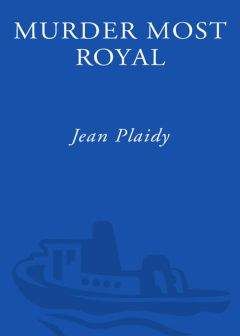
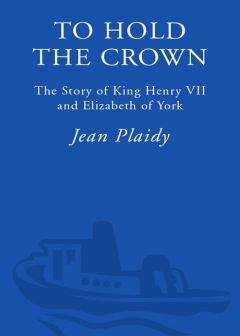
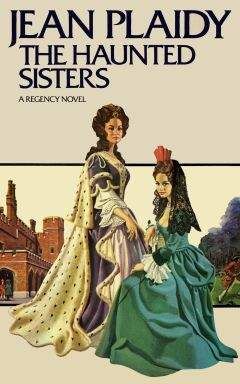
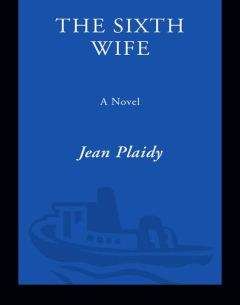
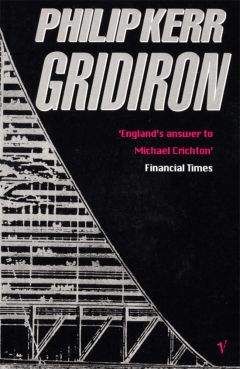











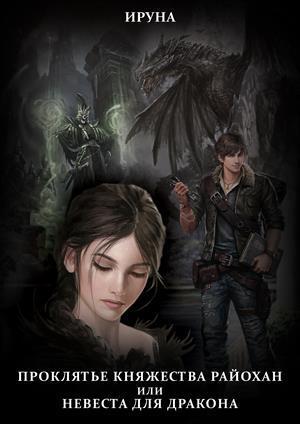




![Судьба, возможно, ты ошиблась [СИ] - Аграфена](/uploads/posts/books/327423/327423.jpg)

